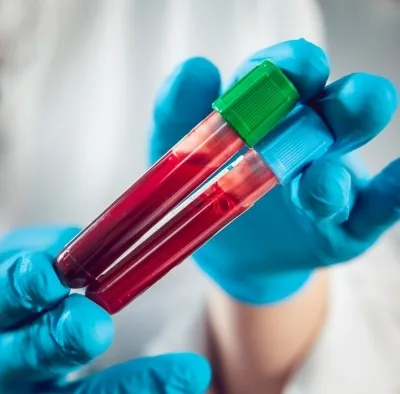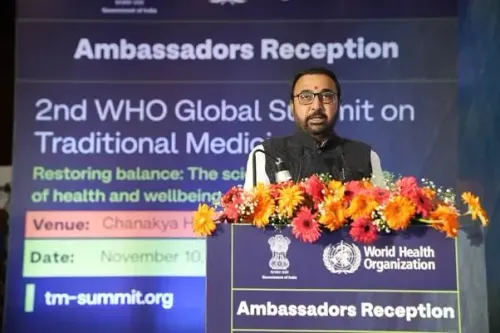Could a New Blood Test Revolutionize Diagnosis of Rare Genetic Diseases in Children?

Synopsis
Key Takeaways
- Innovative blood test for diagnosing rare diseases in children.
- Minimal invasiveness with just 1 ml of blood required.
- Results available in under three days.
- Can identify over 8,000 proteins and assist in discovering new disease genes.
- Potential to significantly cut healthcare costs.
New Delhi, May 26 (NationPress) Researchers from Australia have introduced an innovative, rapid testing technique designed to aid in the diagnosis of rare ailments in infants and children.
Over 7,000 distinct diseases stem from mutations in more than 5,000 identified genes, impacting around 300 million people globally.
Currently, nearly half of the individuals suspected of having a rare disease remain undiagnosed, as traditional testing methods for such conditions are often prolonged.
A team from the University of Melbourne has created a novel blood-based approach that analyzes thousands of proteins in a single, non-targeted test.
The DNA sequences of most genes serve as the blueprint for protein synthesis, which are the molecular engines of our cells and tissues, stated Dr. Daniella Hock, a Senior Postdoctoral researcher at the university, during her presentation at the annual conference of the European Society of Human Genetics in Germany.
"Our new test can detect over 8,000 proteins in peripheral blood mononuclear cells (PBMCs), covering more than half of known Mendelian and mitochondrial disease genes while also allowing us to identify new disease genes," Hock explained.
This novel test is distinctive as it sequences proteins instead of the genes themselves, enabling insights into how variations in gene sequences influence protein functions and contribute to diseases.
It has the potential to apply to thousands of different diseases and can even identify new ones by providing evidence necessary to confirm that a genetic change is likely the cause of the disease.
Notably, the proteomic test is minimally invasive, requiring only 1 ml of blood from infants, with results available in under three days for patients in acute care.
"When we analyze blood samples from both parents alongside the child, we refer to this as trio analysis. In cases of recessively inherited disorders, this significantly aids in distinguishing between carriers, who possess one copy of the defective gene, and the affected individual who carries two copies," Hock added.
In addition to facilitating early detection and offering hope for improved outcomes, replacing numerous targeted tests with a single analysis can also reduce costs for both patients and healthcare systems.









